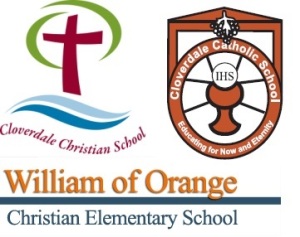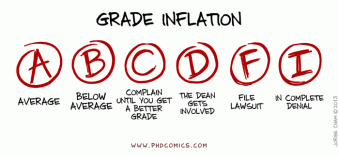This year I am planning a series of blogs on “stuff people have probably wondered but never asked” in education. The first question may seem like a rather mundane subject, but it actually really impacts the lives of students and their families; how is a school calendar determined?
The process of setting a school calendar begins with the provincial government’s Ministry of Education. Independent schools are required by the Ministry to have 850 hours of instructional time. This includes time during which students are under the supervision of their teachers, so in addition to regular class time, it includes things like student-led conferences, fun day, talent shows and school Masses. It does not include after school activities, recess and lunch time (even though I would argue that in some ways they learn more at these times than they often do in class!)
The next stage of the calendar making process is the school board that oversees Catholic Schools of the Archdiocese of Vancouver (CISVA). The CISVA has a higher standard for minimum hours than the government, requiring 900 hours of instructional time. The CISVA also sends out a calendar mapping out mandatory holidays like Christmas Break, Spring Break, as well as three system-wide professional days. The CISVA also determines the first and last day of school. Schools are required to use these dates unless there is a very special local circumstance (i.e. construction projects) that necessitates a change.
At the local level, there is very little leeway in terms of holidays, start and end dates, and professional days. We get to choose a couple of professional days and a day for a staff retreat. This is done in alignment with the needs of the staff and the school. Usually, one day is set aside for planning near the end of the year. Another day is used to work on our school growth plan, which this year is renewing a comprehensive reading strategy. Our staff retreat this year is in January and will be focused on our school theme “Caring for Everyone in Our Common Home.” It usually involves bringing in a guest speaker and spending the day in prayers, listening and quiet reflection. Finally, dates like fun days, talent shows, and fundraisers are usually determined based on when there is time, facility availability, and the needs of the organizers of the events.
I’ve heard it asked (though never by CCS parents), “if professional days are really for “learning”, why are they always on a Monday or Friday? Sounds like just another long weekend for staff.” When we choose to put professional days on Mondays or Fridays it is not to make a long weekend for staff, but it is a consideration for families. Professional days can give families some extra time together. Having professional days on Mondays and Fridays also allows for at least four days in a row of school, thus disrupting the learning week less than if you had it on a Tuesday, Wednesday, or Thursday.
Finally, I’d like to address the issue of the two week Spring Break. As an educator I am not a fan of it, but as a parent whose schedule fits with it, I love the extra time with my kids. Originally the public schools had a one week Spring Break. To save money, they began adding a “shut down” week to their one week Spring Break. This “shut down” saves public school districts a lot of money. During that week they do not pay hourly staff, or clean or heat the school. If a district could save $10,000 per school, and had 100 schools, they would be saving $1 million dollars per year. Public school districts save a lot of money as a result of the extended Spring Break. As an independent school we don’t save much, if any, money. I will resist any move to save money by taking pay away from some of our hardest working employees who happen to be on an hourly scale. Catholic schools went with a two week Spring Break mostly to align ourselves more closely with the public school calendar. We did so without sacrificing any instructional time as we still are required to exceed government expectations for instructional hours by 50 hours. The decision to go with a two week Spring Break was ultimately made several years ago by the CISVA Board of Directors after consultation with all stakeholders.
So that is my understanding of how a school calendar is determined. If you have any questions or suggestions, please feel free to leave them in the comments.
Thanks for reading!





 Finally there is the problem of grade inflation. As a teacher I always found it challenging to simultaneously maintain positive learning environment and give accurate, standardized letter grades. Though a student may “deserve” a C- for the performance they have demonstrated, there are times when it is not in their best interests to see a C- on their report card. As a result, letter grades are “massaged” to meet the needs of the student to get the most out of them. This creates grade inflation and diminishes the real value of the report card.
Finally there is the problem of grade inflation. As a teacher I always found it challenging to simultaneously maintain positive learning environment and give accurate, standardized letter grades. Though a student may “deserve” a C- for the performance they have demonstrated, there are times when it is not in their best interests to see a C- on their report card. As a result, letter grades are “massaged” to meet the needs of the student to get the most out of them. This creates grade inflation and diminishes the real value of the report card.